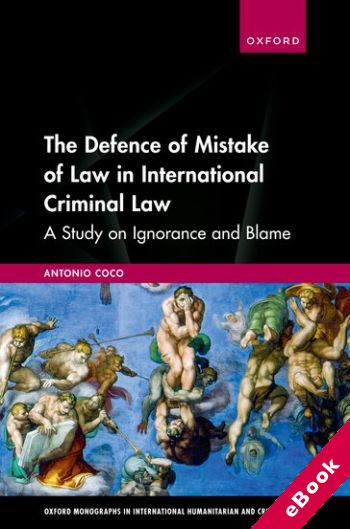
The device(s) you use to access the eBook content must be authorized with an Adobe ID before you download the product otherwise it will fail to register correctly.
For further information see https://www.wildy.com/ebook-formats
Once the order is confirmed an automated e-mail will be sent to you to allow you to download the eBook.
All eBooks are supplied firm sale and cannot be returned. If you believe there is a fault with your eBook then contact us on ebooks@wildy.com and we will help in resolving the issue. This does not affect your statutory rights.
The adage 'ignorance of the law is no excuse' is significantly inaccurate. Ignorance and mistake of law do, under certain circumstances, exclude responsibility both in national and international criminal law. This monograph updates the existing reviews of law and practice on the topic, aiming to go a step further: it takes the analysis of mistake of law as a starting point for systematic observations about international criminal law in general.
First, the volume defines the contours of the defence of mistake of law in general theory of criminal law, distinguishing it from cognate defences and highlighting, most notably, its connection with superior orders. Secondly, it gives an overview of the possible approaches to the defence, offering examples from national law as terms of reference for the subsequent analysis of international criminal law. Thirdly, it surveys the relevant law and practice of international criminal tribunals, with a focus on the International Criminal Court, and it contemplates offences for which a defence of mistake of law may potentially succeed. Finally, the author tries to interpret what the rules on mistake of law applicable before international criminal tribunals imply about the purpose of punishing individuals and to the legitimacy of such punishment.
Whilst the discourse on international criminal law is more and more concerned with global politics, The Defence of Mistake of Law in International Criminal Law brings back the focus on the appropriateness of imposing a guilty verdict on the individual defendant, a human being constituting the basic unit of each society.